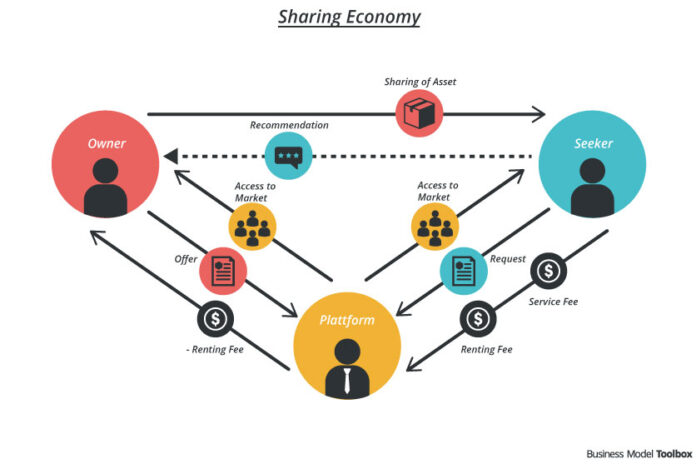By Kate Conger and Erin Griffith
May 7, 2020
OAKLAND, Calif. — The coronavirus pandemic has gutted the so-called sharing economy. Its most valuable companies, which started the year by promising that they would soon become profitable, now say consumer demand has all but vanished.
It is not likely to return anytime soon.
In earnings reports this week, Uber and Lyft disclosed the depth of the financial damage. The companies said their ride-hailing businesses all but collapsed in March, the last month of the first quarter, as shelter-in-place orders spread through Europe and the United States.
The red ink extends beyond ride hailing. The home-sharing company Airbnb, which investors valued at $31 billion, had planned to go public this year. Instead, the company has slashed costs and raised emergency funding, and on Tuesday it laid off 1,900 employees, about 25 percent of its staff. It also reduced its revenue forecast for this year to half of what it brought in last year.
“While we know Airbnb’s business will fully recover, the changes it will undergo are not temporary or short-lived,” Brian Chesky, Airbnb’s chief executive, wrote in a memo to employees.
The companies, founded on the notion that they should become as big as possible as quickly as possible and worry about making a profit somewhere down the line, now face an uncertain future. And their timelines for turning a profit appear — for now — to have been tossed aside.
Even when people return to the office and start traveling, the pandemic could change how they behave for years to come. Thirty percent of gig-economy revenue could disappear over the next one to two years, with a portion of it unlikely to return, said Daniel Ives, managing director of equity research at Wedbush Securities.
Analysis: Reflected in this article is the widespread economic impact resulting from COVID-19 on the “sharing economy”. This article looks specifically on the ride-share and rental-share companies, Uber, Lyft and Airbnb; some of the most prominent names in the economy of shared goods and services. This Article provides my research with a broad scope validation of the negative side-effects this pandemic has had on consumers willingness to participate in an economy dependent on shared touch-points.




